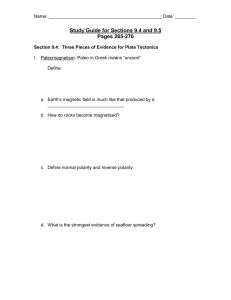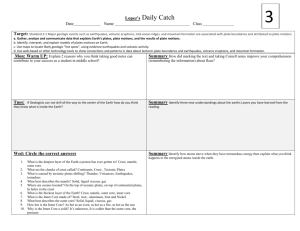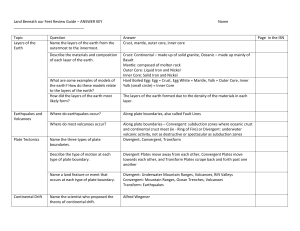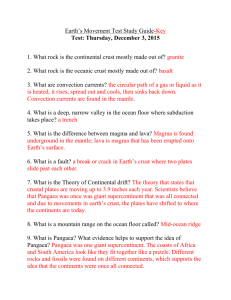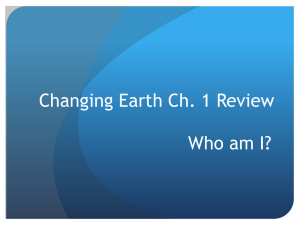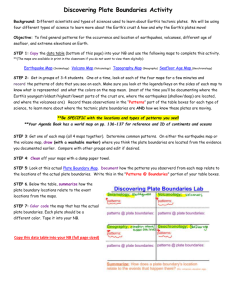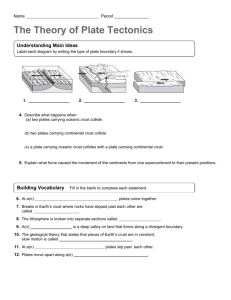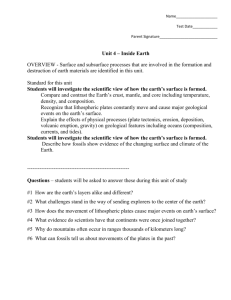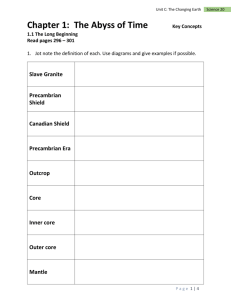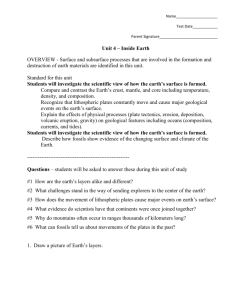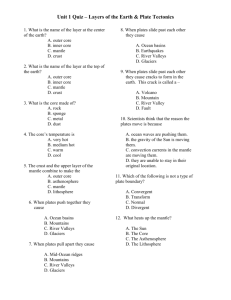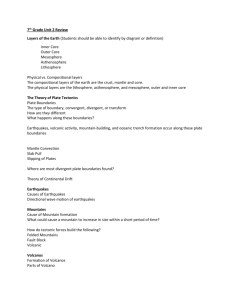Earthquakes Revision Sheet
advertisement
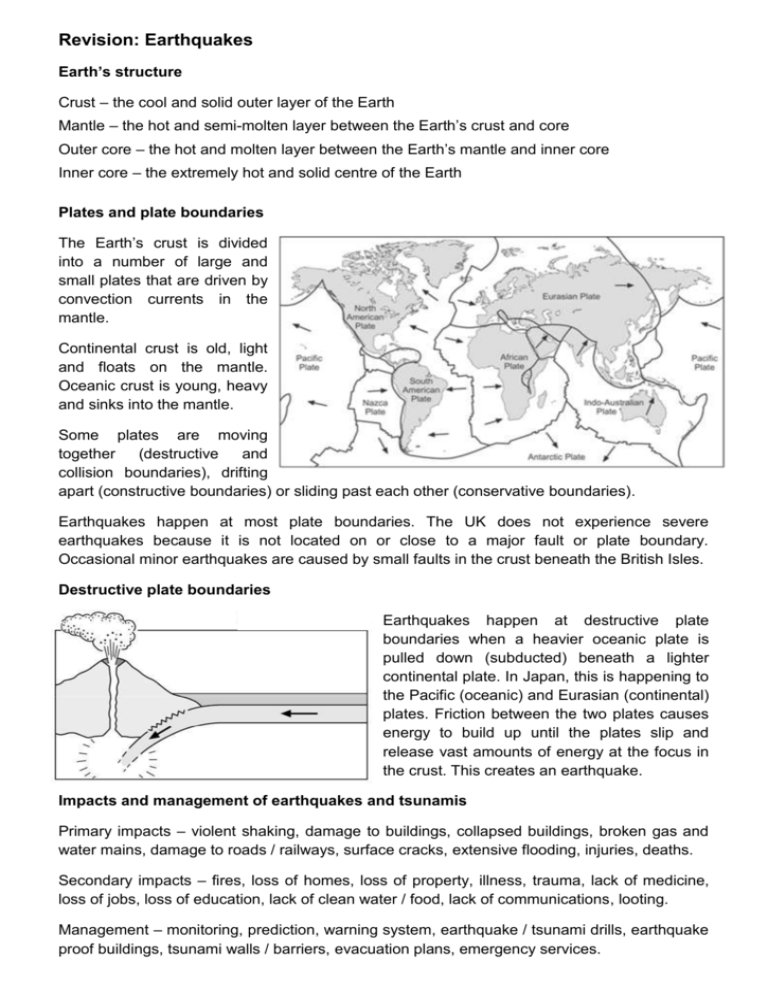
Revision: Earthquakes Earth’s structure Crust – the cool and solid outer layer of the Earth Mantle – the hot and semi-molten layer between the Earth’s crust and core Outer core – the hot and molten layer between the Earth’s mantle and inner core Inner core – the extremely hot and solid centre of the Earth Plates and plate boundaries The Earth’s crust is divided into a number of large and small plates that are driven by convection currents in the mantle. Continental crust is old, light and floats on the mantle. Oceanic crust is young, heavy and sinks into the mantle. Some plates are moving together (destructive and collision boundaries), drifting apart (constructive boundaries) or sliding past each other (conservative boundaries). Earthquakes happen at most plate boundaries. The UK does not experience severe earthquakes because it is not located on or close to a major fault or plate boundary. Occasional minor earthquakes are caused by small faults in the crust beneath the British Isles. Destructive plate boundaries Earthquakes happen at destructive plate boundaries when a heavier oceanic plate is pulled down (subducted) beneath a lighter continental plate. In Japan, this is happening to the Pacific (oceanic) and Eurasian (continental) plates. Friction between the two plates causes energy to build up until the plates slip and release vast amounts of energy at the focus in the crust. This creates an earthquake. Impacts and management of earthquakes and tsunamis Primary impacts – violent shaking, damage to buildings, collapsed buildings, broken gas and water mains, damage to roads / railways, surface cracks, extensive flooding, injuries, deaths. Secondary impacts – fires, loss of homes, loss of property, illness, trauma, lack of medicine, loss of jobs, loss of education, lack of clean water / food, lack of communications, looting. Management – monitoring, prediction, warning system, earthquake / tsunami drills, earthquake proof buildings, tsunami walls / barriers, evacuation plans, emergency services.
